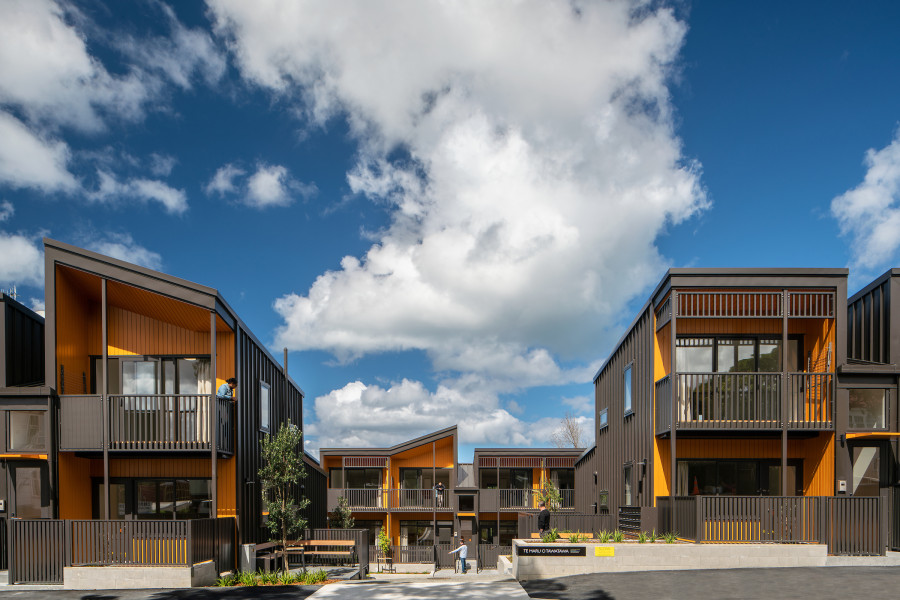
Search
Micro-geography and public tenant wellbeing

Published: 2023
Authors: Arthur Grimes, Conal Smith, Kimberley O'Sullivan, Philippa Howden-Chapman, Lydia Le Gros, Rachel Kowalchuk Dohig
Britomart street social housing. Image credit: Studio Pacific Architecture & Andy Spain
Secure, quality
public housing tenancies
Wellbeing is high
The micro-geography of people’s wellbeing depends on house and neighbourhood characteristics. We show that the form of tenancy is also important. Identical people in identical settings may have different wellbeing outcomes depending on their security of housing tenure. Our findings utilise a survey administered to residents in public rental housing, private rentals and owner-occupiers in New Zealand, focusing on the capital city, Wellington. Despite selection effects which are likely to bias findings against higher wellbeing for public housing tenants, we find that public tenants have higher subjective wellbeing (WHO-5 and Life satisfaction) than do private tenants, and similar wellbeing to owner-occupiers. Length of tenure helps to explain wellbeing differences between public and private tenants, likely reflecting New Zealand law under which private renters have insecure tenure (relative to many overseas jurisdictions). We find also that wellbeing is associated with residents’ perceptions of house suitability and neighbourhood suitability. House suitability reflects house quality, condition, cold and dampness. Neighbourhood suitability reflects the importance of social capital and of living in a safe area. Some characteristics are more important for certain population groups than for others; hence analysts should be wary of generalising about relationships between micro-geographic factors and wellbeing.
Citation
Grimes, Arthur; Conal Smith, Kimberley O'Sullivan, Philippa Howden-Chapman, Lydia Le Gros, Rachel Kowalchuk Dohig. 2023. "Micro-geography and public housing tenant wellbeing". Motu Working Paper 23-08. Motu Economic and Public Policy Research. Wellington, New Zealand.
DOI: 10.29310/WP.2023.08
Funders
Ministry of Business, Innovation and Employment


Level 1, 97 Cuba Street, PO Box 24390
Wellington 6142, New Zealand
Phone: 64 4 939 4250
 Back to main menu
Back to main menu

